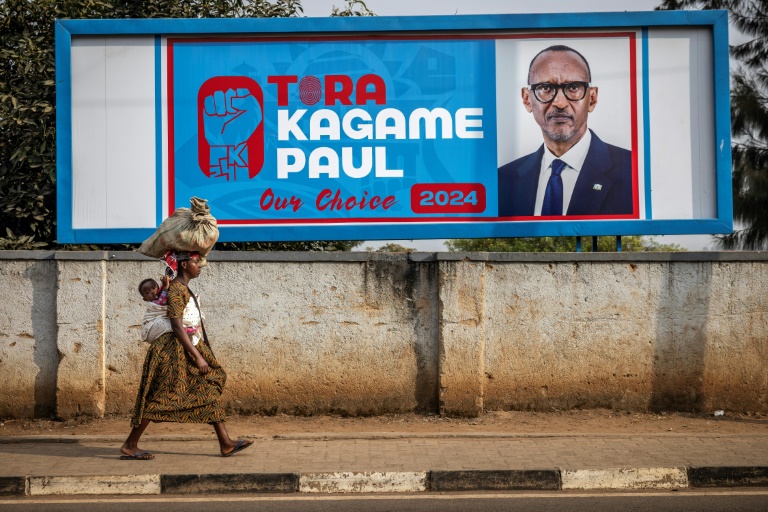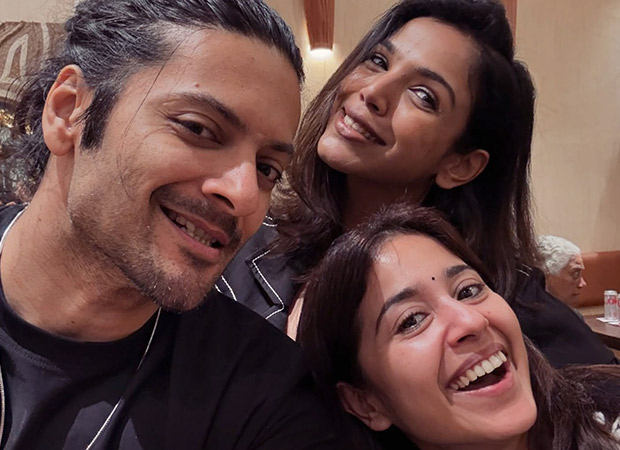Millions of Rwandans head to the polls on Monday with President Paul Kagame set to cruise to victory and extend his iron-fisted rule for another five years.
Rwanda’s de facto leader since the end of the 1994 genocide and president since 2000, Kagame faces only two challengers after several prominent critics were barred from standing.
The lineup is a carbon copy of the last election in 2017, when Kagame obliterated his rivals with almost 99 percent of the vote, and there is little doubt about the outcome this year.
Frank Habineza, leader of the Democratic Green Party, and independent Philippe Mpayimana were the only two candidates approved to run against Kagame out of eight applicants.
With 65 percent of the country’s population aged under 30, Kagame — who is running for a fourth term — is the only leader most Rwandans have ever known.
The 66-year-old is credited with rebuilding a traumatised nation after the genocide unleashed by Hutu extremists that killed around 800,000 people, mainly Tutsi but also Hutu moderates.
But his regime is widely criticised by rights groups as autocratic, stifling the media and political opposition with arbitrary detentions, killings and enforced disappearances.
Abroad, it faces accusations of stoking instability in the neighbouring Democratic Republic of Congo, where a UN report says Rwandan troops are fighting alongside M23 rebels in the troubled east.
More than nine million Rwandans are registered to vote Monday, with the presidential race being held at the same time as legislative elections for the first time.
Polls open at 7:00 am (0500 GMT) and counting will begin as soon as they close at 3:00 pm (1300 GMT), with partial results expected to be released as tallying progresses.
Kagame won with more than 93 percent of the vote in 2003, 2010 and 2017, scoring 98.79 percent in the most recent election compared with just 0.48 percent for Habineza and 0.73 percent for Mpayimana.
He has overseen controversial constitutional amendments that shortened presidential terms from seven to five years and reset the clock for the Rwandan leader, allowing him to potentially rule until 2034.
Rwandan courts rejected appeals from prominent opposition figures Bernard Ntaganda and Victoire Ingabire to remove previous convictions that effectively disqualified them from Monday’s vote.
The election commission also barred high-profile Kagame critic Diane Rwigara, citing issues with her paperwork — the second time she was excluded from running.
Ahead of the election, Amnesty International said Rwanda’s opposition faces “severe restrictions… as well as threats, arbitrary detention, prosecution, trumped-up charges, killings and enforced disappearances”.
The imbalance between Kagame and his rivals was evident during the three-week campaign, as the well-oiled PR machine of the ruling Rwandan Patriotic Front (RPF) swung into high gear.
Pennants on cars, flags, posters and banners displayed along roads, the red, white and blue colours of the ruling party and its slogans “Tora Kagame Paul” (“Vote Paul Kagame”) and “PK24” (“Paul Kagame 2024”) are everywhere.
Despite his many critics, Kagame enjoys great support in Rwanda.
While the World Bank says almost half the population lives on less than $2.15 a day, Kagame has overseen economic growth rates of an average of 7.2 percent between 2012 and 2022 and the development of infrastructure including hospitals and roads.
“He has made great achievements, he has helped our children to go to school, increased the numbers of teachers, he also gave us health insurance,” Venantia Nyirangendo, 51, said during the final RPF rally on Saturday.
“Without him in power, this country would collapse. It’s good that he is our leader, we all love him.”
In contrast to the vast crowds attending Kagame’s rallies, his rivals have struggled to make their voices heard, with barely 100 people showing up to some events.
“It’s good to see that people are no longer afraid to listen to other candidates,” Mpayimana said, but added: “We are facing a candidate who is too strong.”
In the parallel parliamentary election, more than 500 candidates are chasing 80 seats in the Chamber of Deputies.
Another 24 spots are reserved for women, two for youths and one for people with disabilities. All candidates for these seats must be independent, and indirect elections will be held on Tuesday.
AFP
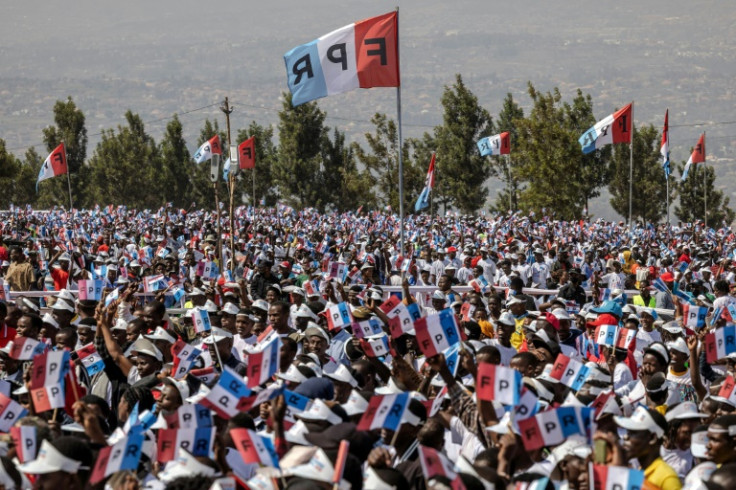
AFP
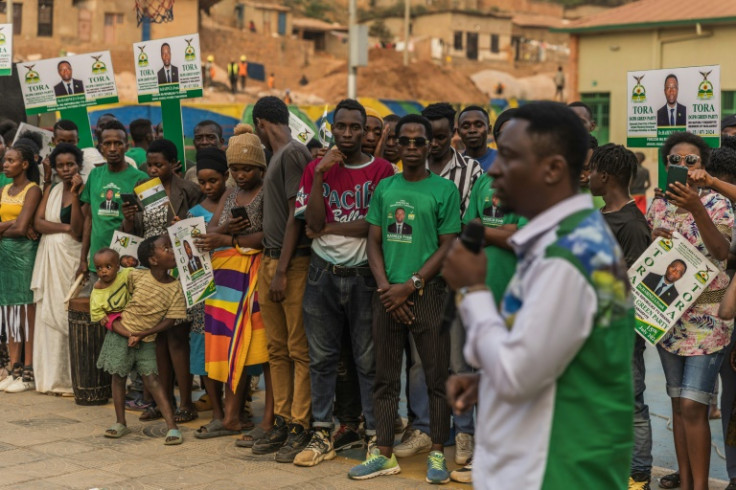
AFP
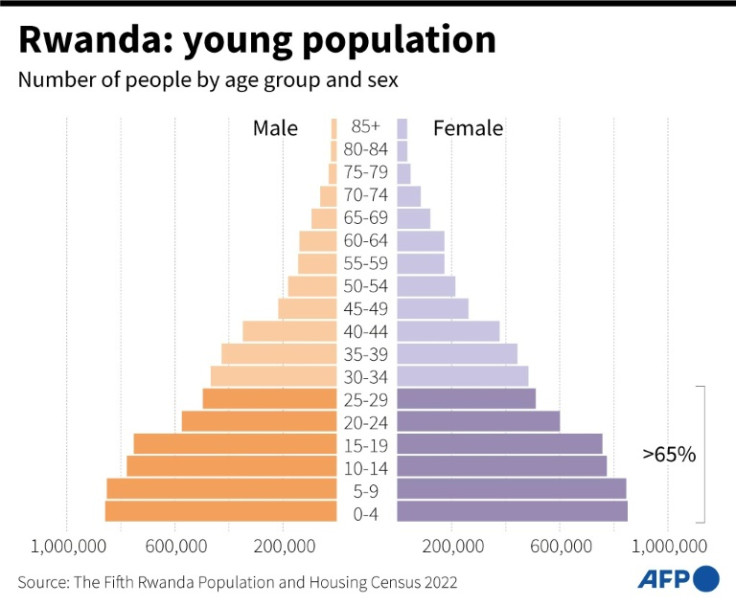
AFP

